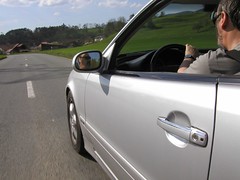| 6636205374 | developmental psychology | a branch of psychology that studies physical, cognitive, and social change throughout the lifespan. | | 0 |
| 6636205375 | zygote | the fertilized egg; it enters a 2 week period of rapid cell division and develops into an embryo | | 1 |
| 6636205376 | fetus | the developing human organism from about 2 weeks after fertilization through the second month | | 2 |
| 6636205377 | habituation | decreasing responsiveness with repeated stimulation. As infants gain familiarity with repeated exposure to a visual stimulus, their interest wanes and they look away sooner. | | 3 |
| 6636205378 | schema | a concept or framework that organizes and interprets information | | 4 |
| 6636205379 | assimilation | interpreting our new experiences in terms of our existing schemas | | 5 |
| 6636205380 | accomodation | adapting our current understandings (schemas) to incorporate new information | | 6 |
| 6636205381 | sensorimotor stage | in Piaget's theory, the stage (from birth to about 2 years of age) during which infants know the world mostly in terms of their sensory impressions and motor activities | | 7 |
| 6636205382 | object permanence | the awareness that things continue to exist even when not perceived | | 8 |
| 6636205383 | preoperational stage | in Piaget's theory, the stage (from 2 to about 6 or 7 years of age) during which a child learns to use language but does not yet comprehend the mental operations of concrete logic | | 9 |
| 6636205384 | conservation | the principle (which Piaget believed to be a part of concrete operational reasoning) that properties such as mass, volume, and number remain the same despite changes in the forms of objects | | 10 |
| 6636205385 | egocentrism | in Piaget's theory, the preoperational child's difficulty taking another's point of view | | 11 |
| 6636205386 | theory of mind | people's ideas about their own and others' mental states--about their feelings, perceptions, and thoughts, and behaviors these might predict | | 12 |
| 6636205387 | concrete operational stage | in Piaget's theory, the stage of cognitive development (from about 6 or 7 to 11 years of age) during which children gain the mental operations that enable them to think logically about concrete events | | 13 |
| 6636205388 | formal operational stage | in Piaget's theory, the stage of cognitive development (normally beginning about age 12) during which people begin to think logically about abstract concepts | | 14 |
| 6636205389 | stranger anxiety | the fear of strangers that infants commonly display, beginning by about 8 months of age | | 15 |
| 6636205390 | attachment | an emotional tie with another person; shown in young children by their seeking closeness to the caregiver and showing distress on separation | | 16 |
| 6636205391 | critical period | an optimal period shortly after birth when an organism's exposure to certain stimuli or experiences produces proper development | | 17 |
| 6636205392 | imprinting | the process by which certain animals form attachments during a critical period very early in life | | 18 |
| 6636205393 | temperament | a person's characteristic emotional reactivity and intensity | | 19 |
| 6636205394 | adolescence | the transition period from childhood to adulthood, extending from puberty to independence | | 20 |
| 6636205395 | puberty | the period of sexual maturation, during which a person becomes capable of reproducing | | 21 |
| 6636205396 | primary sex characteristics | the body structures (ovaries, testes, and external genitalia) that make sexual reproduction possible | | 22 |
| 6636205397 | secondary sex characteristics | nonreproductive sexual characteristics, such as female breasts and hips, make voice quality, and body hair | | 23 |
| 6636205398 | identity | our sense of self; according to Erikson, the adolescent's task is to solidify a sense of self by testing and integrating various roles | | 24 |
| 6636205399 | intimacy | in Erikson's theory, the ability to form close, loving relationships; a primary developmental task in late adolescence and early adulthood | | 25 |
| 6636205400 | emerging adulthood | for some people in modern cultures, a period from the late teens to mid-twenties, bridging the gap between adolescent dependence and full independence and responsible adulthood | | 26 |
| 6636205401 | cross-sectional study | a study in which people of different ages are compared with one another | | 27 |
| 6636205402 | longitudinal study | research in which the same people are restudied and retested over a long period of time | | 28 |
| 6636205403 | crystallized intelligence | our accumulated knowledge and verbal skills; tends to increase with age | | 29 |
| 6636205404 | fluid intelligence | our ability to reason speedily and abstractly; tends to decrease during late adulthood | | 30 |
| 6636205405 | cohort effect | in cross sectional studies, results may reflect differences between life experiences rather than just differences in age (cohorts) | | 31 |
| 6636205406 | animism | during the preoperational stage, when a child gives life-like qualities to an inanimate object | | 32 |
| 6636205407 | identity diffusion | according to Marcia, our identity diffuses to match our peers; this identity is not consistent and we are not committed to that identity | | 33 |
| 6636205408 | identity foreclosure | according to Marcia, our identity has been established by our parents and we accept the identity/role our parents have chosen for us | | 34 |
| 6636205409 | identity moratorium | according to Marcia, we are actively trying on various roles to figure out our identity but we have not committed to a specific identity | | 35 |
| 6636205410 | identity achievement | according to Marica, we have explored our identity options and committed to a specific identity | | 36 |
| 6636205411 | industry | according the Erikson, findings our strengths and talents | | 37 |
| 6636205412 | generativity | according to Erikson, the feeling during middle adulthood that we have accomplished our goals and have something worthwhile to contribute to the next generation | | 38 |
| 6636205413 | imaginary audience | the belief that our peers are constantly focused on us, watching us and judging our actions | | 39 |
| 6636205414 | Piaget | created the theory of cognitive development | | 40 |
| 6636205415 | Kolhberg | created a theory of moral development using the Heinz dilemma | | 41 |
| 6636205416 | Erikson | created the stages of social development; only theorist to believe development continues after adolescence | | 42 |
| 6636205417 | Ainsworth | identified different attachment styles between parents and children with the "Strange Situation" experiment | | 43 |




















































































